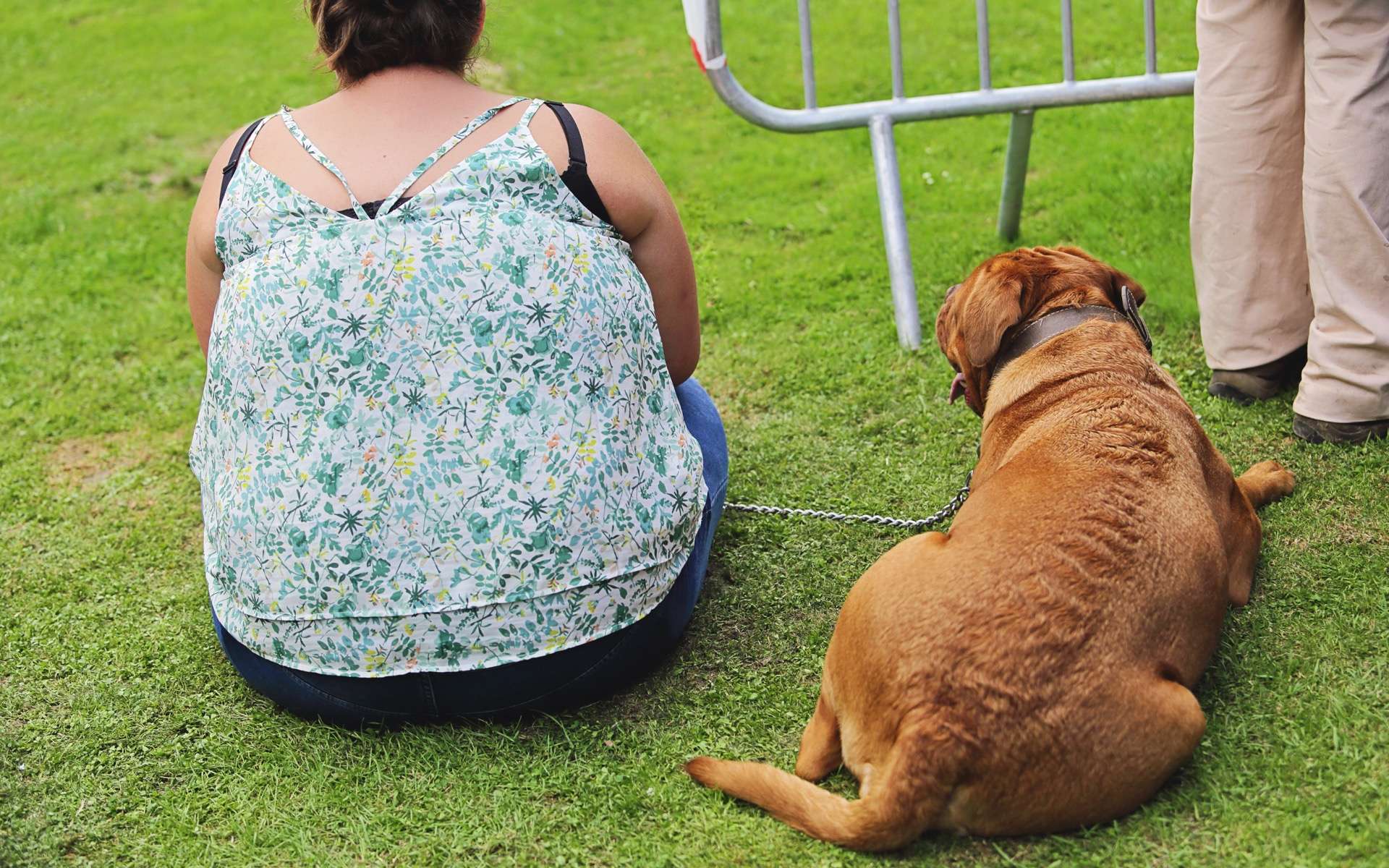What is your risk of developing diabetes if your dog also has the disease? Answer in this article.
–
VIDEO" />You will also be interested
[EN VIDÉO] Dog owners have a 78% higher risk of being infected with the coronavirus Could our faithful four-legged friends transmit certain viruses to us?
—–
Our little furballs, who took care of us during these two confinements, would they be a reflection of our state of health? This is what suggests a recent study published in the British Medical Journal regarding diabetes and the owners of dog only. What does this study really say? Let’s do a check in.
The starting point: past correlations
How did the idea of carrying out such a study come to these Swedish and British scientists? Quite simply because there was already data from cross-sectional studies showing a correlation between the adiposity of pets, specifically dogs, and that of their master. One of the hypotheses put forward to explain these correlations was the sharing of deleterious health behaviors such as diet and sedentary lifestyle. Likewise, correlations exist between humans who live together. If your spouse develops type 2 diabetes, you are more at risk of developing one. Obviously, this only takes into account risk factors that can be shared such as environmental and socio-economic determinants.
The method: a prospective study
Researchers from several university departments (medical sciences, agricultural sciences, veterinary and ecological sciences, medical epidemiology and biostatistics, surgical and orthopedic sciences) from different cities (Upsalla, Liverpool and Stockholm) then undertook a prospective longitudinal study consisting in collecting data. on precise parameters (here, the occurrence of diabetes) by following a population over time for a maximum of six years. After screening using exclusion criteria, 208,980 owner-dog pairs and 123,566 owner-cat pairs were included in the study. All were born before 1961 in order to exclude young people, less at risk from the sample. to develop type 2 diabetes.
Results: yes for dogs, no for cats
An association between animal and owner type 2 diabetes was only found in dog owners with a 4-68% increase in risk when the results are adjusted for different relevant confounders. Among cat owners, no correlation can be seen. The authors try to explain this by a weak agreement between the activity The theories established by physics apply in well-defined frameworks.
La physique…” data-image=”https://cdn.futura-sciences.com/buildsv6/images/midioriginal/8/9/6/896f032c90_91933_physique-def.jpg” data-url=”https://www.futura-sciences.com/sciences/definitions/physique-physique-15839/” data-more=”Lire la suite”>physique of the owner and the cat between the physical activity of the owner and the dog.
However, the study has important limitations, such as incomplete information on the owners’ diet and physical activity, surveillance bias in people knowing the symptoms of diabetes by having observed them in their dog or in them, the non-identification of diabetics not treated medically or the fact that the people included in the study had the means to have a serious and regular veterinary follow-up of the health of their pet.
So what can we conclude from this study? Not much, except for the fact that sharing certain aspects of the lifestyle with your pet could slightly increase the occurrence of type 2 diabetes in both. So, pay attention to your dog’s diet and move with him, you will kill two birds with one stone taking care of your health and his.
Interested in what you just read?
–
– .

